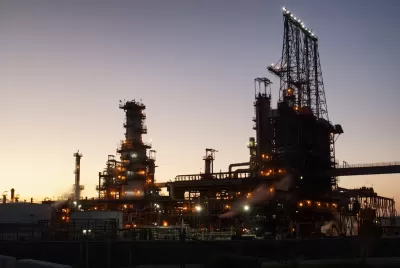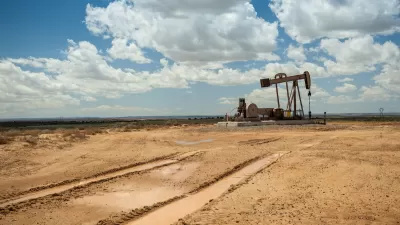The sudden closure of the Phillips 66 refinery in Los Angeles has been welcomed by environmental and community activists, raising hopes for reduced pollution.

The recent announcement that the Phillips 66 refinery in Los Angeles will close next year has been met with relief from environmental activists and local residents. The refinery, located in Carson and Wilmington, has been a source of pollution and health concerns for over a century, with complaints of toxic emissions, flaring, and fires in recent years. According to Julia May from Communities for a Better Environment, the sudden closure, though unexpected, is seen as an opportunity to address the environmental and public health issues that have long plagued the surrounding communities.
As reported by Tony Briscoe, the refinery’s shutdown comes as California’s demand for fossil fuels declines, largely due to the increasing adoption of electric vehicles and the state’s broader efforts to transition away from petroleum products. This trend has raised questions about the future of the site and whether cleaner, more sustainable operations could replace the refinery infrastructure. Meanwhile, community advocates are emphasizing the need for a just transition, ensuring that the 600 workers and 300 contractors affected by the closure are supported in finding new employment in emerging sectors of the economy.
The Phillips 66 facility has been notorious for releasing harmful chemicals, including benzene and sulfur dioxide, which have impacted the health of nearby residents. Among the most concerning incidents were two major fires at the Carson refinery in 2019, which led to citations from the U.S. Environmental Protection Agency. As the closure moves forward, environmental and community activists are hopeful that this marks a significant step toward reducing pollution in the region while promoting environmental justice.
FULL STORY: Phillips 66 refinery closure a welcome surprise to environmental and community activists

Planetizen Federal Action Tracker
A weekly monitor of how Trump’s orders and actions are impacting planners and planning in America.

Congressman Proposes Bill to Rename DC Metro “Trump Train”
The Make Autorail Great Again Act would withhold federal funding to the system until the Washington Metropolitan Area Transit Authority (WMATA), rebrands as the Washington Metropolitan Authority for Greater Access (WMAGA).

DARTSpace Platform Streamlines Dallas TOD Application Process
The Dallas transit agency hopes a shorter permitting timeline will boost transit-oriented development around rail stations.

The Tiny, Adorable $7,000 Car Turning Japan Onto EVs
The single seat Mibot charges from a regular plug in about as much time as an iPad, and is about half the price of an average EV.

Supreme Court Ruling in Pipeline Case Guts Federal Environmental Law
The decision limits the scope of a federal law that mandates extensive environmental impact reviews of energy, infrastructure, and transportation projects.

Texas State Bills to Defund Dallas Transit Die
DART would have seen a 30% service cut, $230M annual losses had the bills survived.
Urban Design for Planners 1: Software Tools
This six-course series explores essential urban design concepts using open source software and equips planners with the tools they need to participate fully in the urban design process.
Planning for Universal Design
Learn the tools for implementing Universal Design in planning regulations.
Roanoke Valley-Alleghany Regional Commission
City of Mt Shasta
City of Camden Redevelopment Agency
City of Astoria
Transportation Research & Education Center (TREC) at Portland State University
US High Speed Rail Association
City of Camden Redevelopment Agency
Municipality of Princeton (NJ)





























